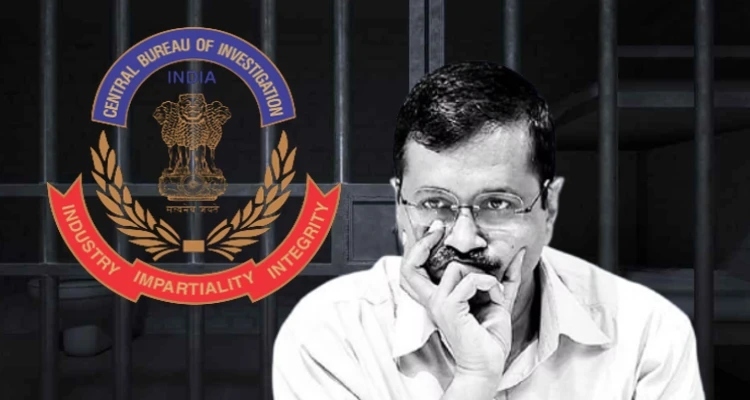
The Supreme Court on Monday agreed to consider listing a plea by Chief Minister Arvind Kejriwal challenging the Delhi High Court’s order that upheld his arrest by the CBI in connection with the alleged excise policy scam.
On August 5, the Delhi High Court ruled that Kejriwal’s arrest was lawful and stated there was no malice in the actions of the Central Bureau of Investigation (CBI). The court observed that the CBI had demonstrated how the AAP leader could potentially influence witnesses, who only felt safe enough to come forward after his arrest. The High Court had advised Kejriwal to seek regular bail from the trial court in the CBI case.
Senior advocate Abhishek Singhvi, representing Kejriwal, mentioned the plea for urgent hearing before a bench consisting of Chief Justice D Y Chandrachud and Justices JB Pardiwala and Manoj Misra. Singhvi highlighted that the bail pleas of other accused under the Prevention of Money Laundering Act (PMLA) were already scheduled for hearing. In response, the Chief Justice remarked, “Please email it, I will look at it.”
The appeal was filed by Kejriwal in the Supreme Court, according to lawyer Vivek Jain, who is associated with the case.
The High Court had noted that the evidence against Kejriwal was solidified after his arrest by the CBI and could not be considered unjustified or illegal. The court acknowledged that Kejriwal is not an ordinary citizen but a prominent figure, being a Magsaysay Award recipient and the convenor of the Aam Aadmi Party.
The court further observed that Kejriwal’s influence on the witnesses was evident, as they only came forward after his arrest, as pointed out by the special prosecutor. The High Court concluded that there was no malice in the CBI’s actions, and sufficient evidence had been collected before proceeding with further investigation against Kejriwal.
The High Court also dismissed Kejriwal’s challenge to his arrest, emphasizing that it was based on adequate evidence and that a sanction had been obtained in April 2024 before continuing the probe. It noted that the scope of the crime extended to Punjab, but witnesses were initially reluctant to come forward due to Kejriwal’s influence. Only after his arrest did they feel secure enough to provide statements.
The High Court underscored the importance of courts, especially at the initial stages, in ensuring that the powers of arrest and remand are not misused or exercised casually.
Kejriwal, who was arrested by the Enforcement Directorate (ED) on March 21, was granted bail by the trial court in the money laundering case on June 20. However, this order was stayed by the High Court. On July 12, the Supreme Court granted him interim bail in the money laundering case.
The excise policy, which was scrapped in 2022 following a CBI probe ordered by the Delhi lieutenant governor, is at the heart of the case. According to the CBI and ED, irregularities were committed in the modification of the excise policy, leading to undue favors being granted to license holders.




